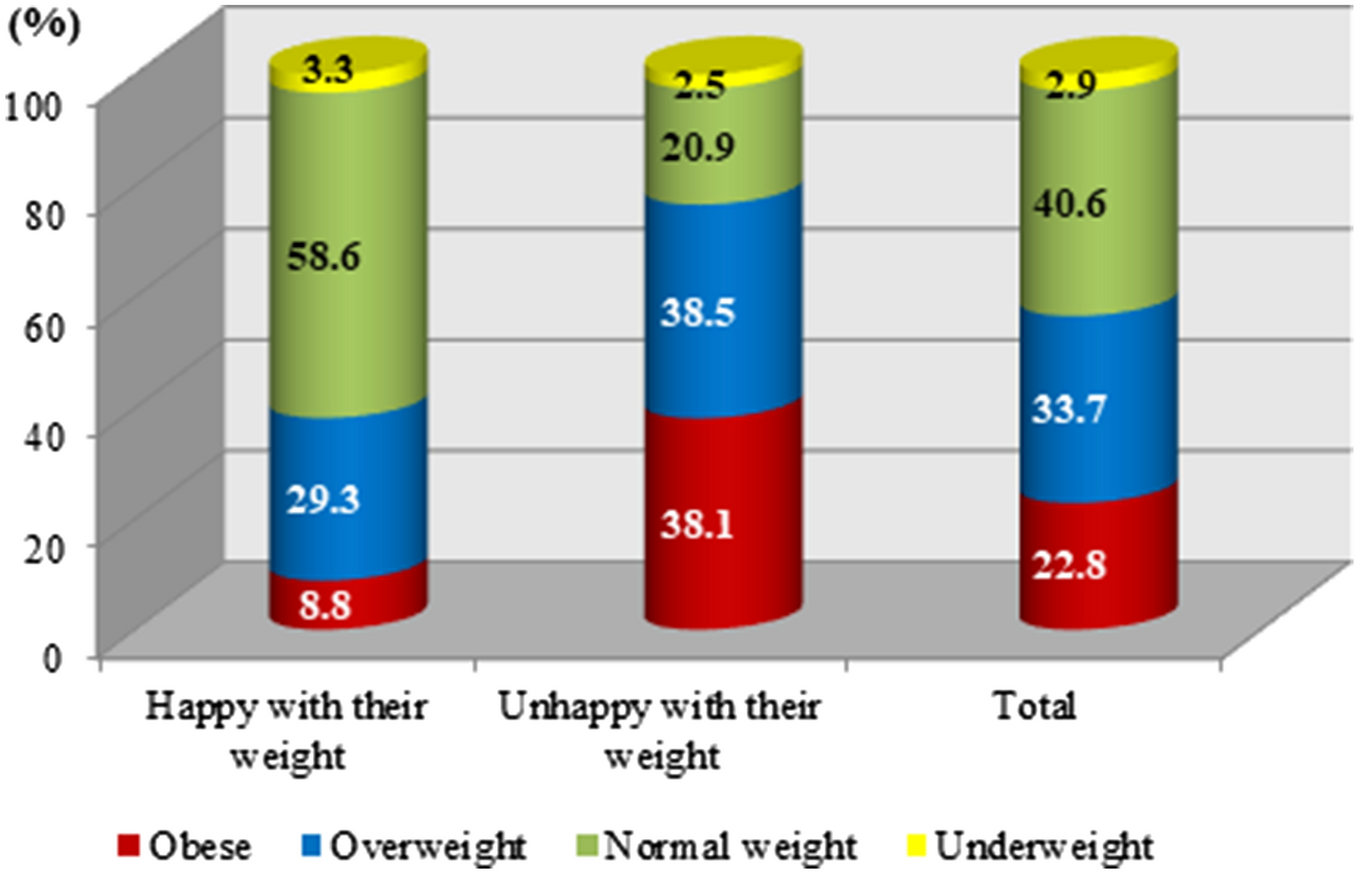Factors of Overweight and Obesity Among Employees of Petrochemical Manufacturing Companies
Published in General & Internal Medicine, Business & Management, and Economics
Over the past four decades, Saudi Arabia has witnessed rapid urbanization and changes in socioeconomic status that have ultimately had a significant impact on the lifestyle of Saudis, moving away from traditional values and customs towards more western behaviors such as dietary changes, a sedentary lifestyle life. which ultimately leads to high levels of overweight and obesity. The high prevalence of overweight and obesity is a major contributor to the global and local burden of disease, and create an economic burden for nations, including both direct and indirect costs. Direct costs include the medical costs of diagnosing and treating obesity and the conditions it causes. While indirect costs are often associated with losses in human capital, including the cost of lost productivity due to absenteeism, decreased productivity, reduced participation of the individual, and premature mortality
On the other hand, rapid urbanization followed oil discovery, and the increased wealth of the population of the Kingdom of Saudi Arabia contributed to lifestyle changes and unhealthy behaviors, including lower physical activity, and the consumption of more processed and high fat foods. Although the Kingdom of Saudi Arabia is rapidly industrializing and the economy is now less dependent on oil, oil industry is still the main contributor to the Saudi labor force (41%). While workplace can be an ideal setting for the promotion of a healthy lifestyle by creating a supportive environment and a company culture built on a healthy and safe workplace, no studies have been conducted to explore the factors that can be associated with the lower productivity among employees of petrochemical manufacturing companies in the Kingdom of Saudi Arabia. This study aimed to estimate the prevalence of overweight/obesity and examine the association between overweight/obesity and lifestyle habits among employees of petrochemical manufacturing companies in the Kingdom of Saudi Arabia.
A total of 1000 employees were surveyed. Chi-square test and logistic regression were used to predict odds ratios for obesity. About 47% of the sample was normal weight, while 28.5% was overweight and 21.2% was obese. Four factors were found to be predictive of obesity: feelings about weight, age, marital status, and childhood region. The most significant and the only modifiable factor associated with high BMI was feeling about their weight. More than 52% of employees reported being happy with their weight. Those unhappy with their weight had more than six times greater odds of obesity as compared to those happy with their weight. Helland and Nordbotten (2021) in their research on dietary changes, motivators, and barriers affecting diet and physical activity of overweight and obese, reported that health benefits were the most important motivator to change lifestyle, nutritional and physical activity behaviors. Moreover, perception of body weight status may be a key motivating factor leading to a healthy lifestyle and weight management. Thus, improving general health could be an important motivation for redefining the lifestyle of this study sample. Interventions designed to improve knowledge about healthy weight, as well as the importance and health benefits of physical activity and healthy eating could change perceptions about healthy weight and increase motivation to sustain healthy lifestyle habits.
The findings of current study suggest the need for action among employees of petrochemical manufacturing companies to enrich their knowledge in relation to health benefits of leading a healthy lifestyle. The results of this study can be used to explore further the preferences of petrochemical manufacturing employees about healthy lifestyle and design company policies and procedures aimed at promoting healthy lifestyle and creating a healthy work environment. This can be achieved through the participation of the target population in developing, implementing, promoting the programs, as well as evaluating the program's impact. The emphasis should be on both a healthy lifestyle and feelings about weight, enriched with appropriate knowledge. Lastly, further research is recommended to detect more behavioral determinants of weight issues and elucidate the complex relationship between the identified factors of this research and obesity status.
This study highlights the considerable burden of overweight and obesity among employees of petrochemical manufacturing companies, which suggests that workers will likely suffer from an even greater burden of non-communicable diseases (NCDs) in the coming years. The workplace is a perfect setting for the promotion of a healthy lifestyle by creating an environment supportive of a healthy and safe workplace. Investments in the prevention and treatment of overweight, obesity and related diseases can foster the physical health and well-being of employees while at the same time improving productivity.
Follow the Topic
-
Journal of Community Health

This is a peer-reviewed publication that offers original articles on research, teaching, and the practice of community health and public health.

Please sign in or register for FREE
If you are a registered user on Research Communities by Springer Nature, please sign in